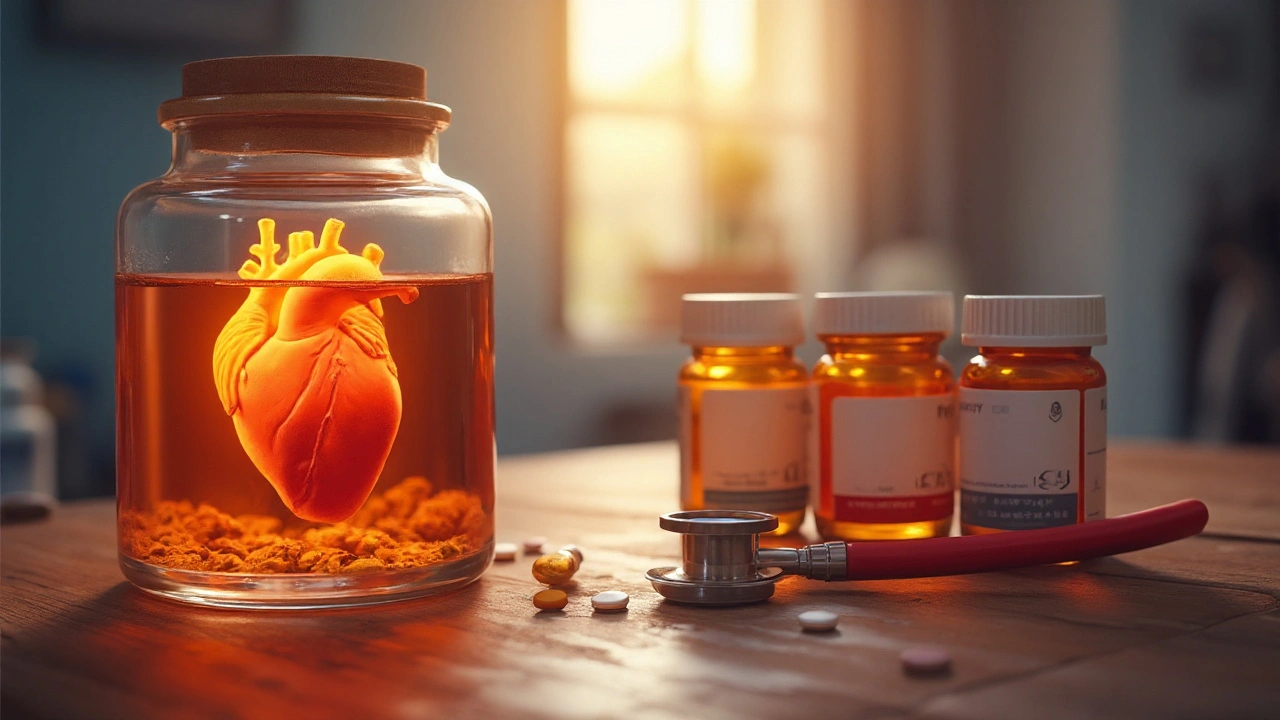Cardiac Glycoside Comparison: What You Need to Know
If you've ever been prescribed a heart medication and heard the term “cardiac glycoside,” you might wonder what the difference is between digoxin, digitoxin, ouabain and the rest. These drugs all belong to the same family, but they aren’t interchangeable. Knowing the key facts can help you talk confidently with your doctor and keep your heart on track.
How Cardiac Glycosides Work
All cardiac glycosides boost the force of your heart’s contractions by blocking a tiny protein called Na⁺/K⁺‑ATPase. That blockage raises calcium inside heart cells, which makes each beat stronger. The result is better blood flow and lower heart‑failure symptoms. However, each drug does this a bit differently – some act fast, others linger for days, and some have a tighter safety window.
Side‑by‑Side Comparison of Common Glycosides
Digoxin is the most widely used in the U.S. It has a half‑life of about 36‑48 hours, so doctors usually prescribe it once a day. Because it clears relatively quickly, dose adjustments are easier if your kidney function changes. Common side effects include nausea, blurred vision and a characteristic yellow‑green halo around lights.
Digitoxin stays in the body much longer, with a half‑life of 5‑7 days. This means you might take it only every other day, but it also sticks around if you miss a dose. It’s less dependent on kidney function, which can be a plus for patients with renal issues, but the longer stay increases the risk of buildup and toxicity.
Ouabain is the least used clinically today. It acts very quickly, making it useful in research and some emergency situations, but its short‑acting nature requires close monitoring. Side effects are similar to other glycosides but can appear faster because the drug reaches peak levels quickly.
When comparing potency, digoxin is considered the “standard” – digitoxin is roughly 1.5‑2 times more potent per milligram, while ouabain’s potency varies with the formulation. All three can cause arrhythmias if levels get too high, so blood‑level testing (especially for digoxin) is a routine part of therapy.
Practical tips: always take the medication at the same time each day, keep a list of other drugs (especially diuretics, calcium supplements and anti‑arrhythmics) that might interact, and watch for warning signs like sudden vision changes, severe stomach upset or irregular heartbeats. If you have kidney or liver problems, your doctor may favor digitoxin or adjust the digoxin dose accordingly.
Bottom line: knowing whether your prescription is digoxin, digitoxin or ouabain changes how you manage dosing, monitoring and side‑effect watch‑outs. Use this guide to ask the right questions at your next appointment and keep your heart health on point.
Digoxin vs Alternatives: How to Choose the Right Heart Medication
A clear, side‑by‑side comparison of Digoxin and its main alternatives for heart failure and atrial fibrillation, covering mechanisms, dosing, safety and practical tips.
